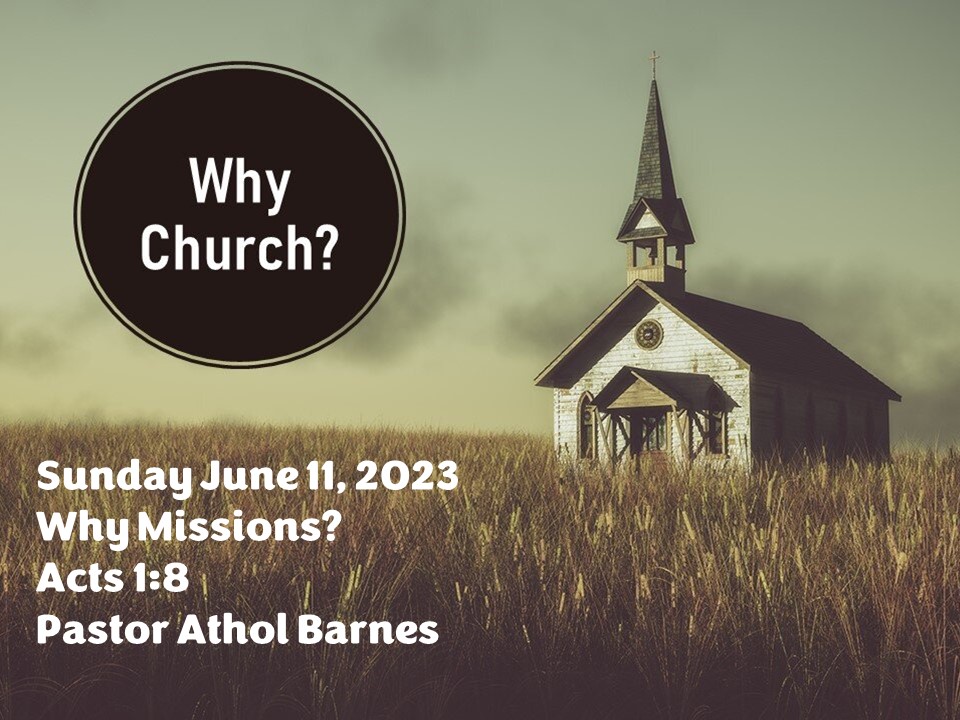
Why does the church do missions?
The term missions conveys the idea of a military campaign and the truth is that when we go out to share the Gospel, we are going out into enemy territory, with the goal and purpose of winning souls for Christ. It is spiritual warfare. The enemy is real, and the warfare is real, particularly in regions where there is prevalent witchcraft and demonic worship.
Some people argue that the church focuses too much on mission and not enough on the discipleship and nurturing of our own church family. We have this tension between mission and discipleship.
The truth is that the church is called to do both. One without the other is disobedience to the instructions of Jesus. Jesus instructed Peter in John 21 to, “feed my sheep”, to instruct and feed the followers of Jesus with the Word of God. The apostle Paul also instructed Timothy to preach the word patiently to those in the church (2 Timothy 4:2).
The church needs discipleship, and the church is a place where believers can come and be fed the word of God. But the church also needs to be obedient to the command of Jesus to go and preach the Gospel.
We all know the Great Commission found in Matthew 28, but we can sometimes forget that the Great Commission is found in each of the four Gospels, and also in Acts 1:8.
Matthew 28:16-20, Mark 16:14–18, Luke 24:44–49, John 20:19-23, and Acts 1:4–8.
The Gospel of Luke has a different perspective on the Great Commission and each of the Gospels give us a different view of the Gospel account. It’s like turning a diamond around in the light and seeing the beauty of the Gospel from different angles.
Luke recalls that after his resurrection, Jesus explained the Scriptures to the disciples (Luke 24:44-45). Jesus reminded them of all the prophecy’s that had been fulfilled in his life up to that point and how the Old Testament was a prophetic revelation of Jesus. It was probably a very gentle “I told you so” moment.
And then in verse 47 we read, “and that repentance for the forgiveness of sins should be proclaimed in his name to all nations, beginning from Jerusalem.”
Luke, under the inspiration of the Holy Spirit, highlights that salvation comes through repentance and turning from our old way of life. Sadly, the message of repentance is not preached enough today.
Luke continues in verse 49, “And behold, I am sending the promise of my Father upon you. But stay in the city until you are clothed with power from on high.”
Luke recalls that Jesus told his disciples to wait, not to go anywhere until they had been filled with the Holy Spirit. The Holy Spirit coming on the gathering in the upper room in Acts 2, is the fire of God that was and is the catalytic power of the church.
Luke records that Jesus told them about a promise that was made long ago, the promise of the Father to send the Spirit. Jesus was referring to Isaiah 32:15 and Joel 2 for a couple of examples.
This is crucial for the mission of the church; we must never think that we can do anything for God in our own strength.
The disciples before Pentecost were a group hiding behind locked doors, fearing for their lives and not a very effective group at all. But then, the Holy Spirit comes on them and they run out into the streets proclaiming Jesus as the risen Son of God, the Messiah. Their boldness was staggering, and the effectiveness of their witness changed the world. They were used by God the Holy Spirit.
They had courage as they went with the Power of the Holy Spirit.
Boldness like this is not restricted to the early church or to the disciples who walked with Jesus. This boldness accompanies and characterizes any believer who, against opposition, boldly proclaims the truth of God’s word.
None of the people who are heading out on mission trips from Grace Point this summer are under any illusion that they have some unique ability that qualifies them to go and preach the Gospel with power. Rather, they are humbly saying yes to the Lord and then inviting the Holy Spirit to empower, lead, and use them for the Glory of God.
So Why missions?
Because it builds the church. Not only are new converts added to the church, but it also builds the faith of the church as we hear stories of God moving in power.
Missions is a double-edged sword. It grows the people going by stretching them in their faith and accomplishes much more in discipleship than any classroom environment could ever do. And then there is the blessing of seeing people saved and entering into the kingdom, helping other churches to grow in health and welcome new converts.
Missions is not only the instruction that Jesus gave the church, but it is the fuel and the impetus that ensures the church stays healthy.

